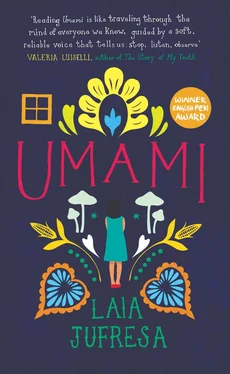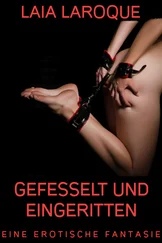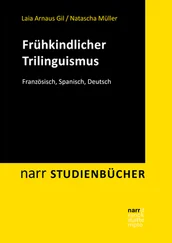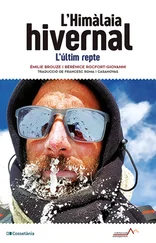The Year of Reproduction — which was how we later came to refer to the period in which we returned to Mexico City, and which was really more like three years — coincided with the construction of the mews. We were investing so that our imaginary future ward would never want for anything. They were exhausting, superstitious and anxious times, but they never got the better of us. The truth is that we both showed ourselves to be skeptics, as much with regard to the builders as the pregnancy. And this brought us closer than ever. We suspected everything and everyone: in particular the pair of doctors we consulted, but also the construction foreman.
Saturdays went like this: we’d pay the builders their weekly wage, wait for them to leave, then make love. Apart from Saturdays and the odd siesta, we had an ovulation calendar stuck to the bathroom wall. I never really understood it, but in practical terms it worked like this: Noelia said, ‘Now!’, and her wish was my command.
We kept clay figures at home. Imitation pre-Hispanic pieces. The kinds of knickknacks educated Mexicans buy. Apart from this educated Mexican: I got them free. Every year the institute gives its researchers a bonus coupon packet to be spent in its own stores. I never cared much for their folkloric CDs or gimmicky T-shirts, but during the Year of Reproduction, the coupons found their use: we stocked up on figurines. In fact, we took collecting pretty seriously. On a chest in the living room we arranged a selection of little fertility goddesses from different cultures. A couple of them were made from amaranth, which I was already investigating by then. Our friends even donated their mythical figures to our cause (although both Noelia and I suspected that they blew out the candles they lit for us the moment we left their houses).
One day during all this, I arrived home to find all the little statues with their heads covered with strips of cloth. When I asked Noelia what it was all about, she answered, ‘ a ) How have you not noticed they’ve been like that for three days? and b ) it’s a plan I came up with, to wake them up with a bang.’
‘How do you figure that?’ I asked.
‘I cover their heads with a cloth, right? Then I leave them like that a few days, and around midday on Sunday, when the sun’s at its brightest, I whip off the cloth and pow!’
‘Pow?’
‘They wake up with a bang.’
‘And why do we want them to wake up with a bang?’
‘So they get a move on, Alfonso. So they grant us our little miracle.’
Our little miracle, of course, was the child we never had. The child we never asked for. Or rather the child we asked for, but without sufficient faith to make the gods get a move on. It didn’t work. In 1991, Chela and Linda, our tenants with whom Noelia had been spending all her free time (supposedly to get some pregnancy training in), each gave birth to a baby girl. They were ten years younger than her, and by the end of the first month helping them in their new lives as mothers, Noelia decided that the whole thing was way too much at our age and decided to have her tubes tied, just in case Fate came to bite us in the ass.
Of course, it wasn’t as easy as all that. We cried the tears we had to cry. The statuettes remained covered up. I was fifty. She had just turned forty-two. We decided we’d be grandparents to the little neighbors, if they’d have us, and we let go.
*
When something was a bit insipid, a bit lacking in meatiness or flavor, Noelia and I declared it ‘Umami No’. It sounded Japanese.
*
Feeding is another area of arrested development if you suffer from the condition of offspringhood. That’s how Noelia justified her weight-gains and — losses, which began when she quit smoking.
‘I don’t have anyone other than myself to feed.’
‘What am I, chopped liver?’
‘You’re not growing, Alfonso. And you don’t count: a ) because you’re skinny, and b ) because it’s you that feeds me.’
There was one period when I was less skinny: during that fateful year in Morelia I put on six kilos (me, who’s always been a beanpole), I guess because the army of aunts would feed us at the slightest encouragement. Noelia put on fourteen kilos, and that on a diet. But in Morelia a light dessert is when they substitute sugar for condensed milk.
I think I’m putting on weight now, actually. It must be all the take-outs and tequila. Maybe I should head to the supermarket, resume old habits, make myself that soup. I used to make chicken stock every Sunday and use it to make all kinds of soups during the week, plus whatever you could whip up with the shredded chicken: sandwiches, tacos, salads. Sometimes I fantasize about investing in a battery-operated mechanism that makes The Girls eat. And since I know that no such thing exists, the rest of the time I fantasize about inventing it. Why did I become an anthropologist when I could have been an engineer, an inventor, a carpenter?
Yesterday the postman delivered an invitation from the institute to a seminar so rhetorically and pompously titled I wanted to scream. The academy is the place where the middle classes puff themselves up with their Sunday-best words and endorse the myth that knowledge is power. Load of boloney! Knowledge debilitates. Knowledge inflates the ego and starves ingenuity. To know is to use the body less and less; to live a sedentary existence. Knowledge makes you fat! Thank God I’m not advising any doctoral students at the moment, because that’d be my aphorism of choice to rip apart their empty theories about the latest trendy sacred pseudo-cereal (no doubt quinoa, which, by the way, was never eaten in Mexico). The new kids on the block can argue with me till they’re blue in the face. Go and scrape the potsherd, for Christ’s sakes! Use your brain and your microscope and don’t go making up crap when the truth is ten times more interesting than the drivel your tiny minds come up with!
Knowledge pisses you off.
*
A list off the top of my head of the things Noelia would buy in the supermarket without stopping to think:
Flip-flops, especially the kind with patterns on them. I must have given away a thousand pairs, but every time I clean out a closet, there’s another one.
Tin foil.
Canned tuna. This was an old tic of hers: before she met me, since she practically lived at the hospital, she ate the same salad, over and over, which she’d picked up when she did her junior residence. It consisted of one can of tuna, another of corn, and a few tablespoons of Hellmann’s mayonnaise. (Noelia made a point of stressing the mayonnaise brand whenever she passed on the recipe to some malnourished resident: in her day, only the nurses used McCormick; residents ate Hellmann’s.)
Sugar-free gum (at the cash register). She only ever chewed gum when she drove alone, because she was paranoid she’d fall asleep at the wheel.
Paracetamol.
PAM: 1-cal cooking spray.
*
Noelia once said to me, ‘Being only a daughter is so Umami No.’
*
PAM cooking spray — that piteous substitute for oil which I refuse point-blank to use — came into our lives kicking and screaming. Lulú brought it for us. Lulú is Noelia’s cousin from Boston, and was the undisputed chief promoter of my wife’s esoteric side. Every time she came to stay she’d bring a new tarot-card game, or a year’s worth of Chinese horoscopes, or a book on her latest diet. The pair of them were hooked on Weight Watchers for about a hundred years, during which time Lulú sent boxes and boxes of points-based, readymade food without ever giving a thought to how deeply it offended me.
In exchange, whenever Noelia went to the States for a conference, she would take Lulú a box full of handmade tortillas and Mexican bits, because her cousin was one of those émigrés who spends their life idolizing their homeland. When it got easier to get hold of Mexican products over there, Lulú became more and more picky. She only wanted Noelia to bring her things from the market; nothing prepackaged. One time they stopped us at customs and we had to hand over all seven kilos of the Oaxaca cheese we’d attempted to sneak through. Try as Noelia might to play up her credentials for the customs officers, nobody would believe her that that stringy, by then ever-so-slightly-tangy cheese was pasteurized.
Читать дальше












